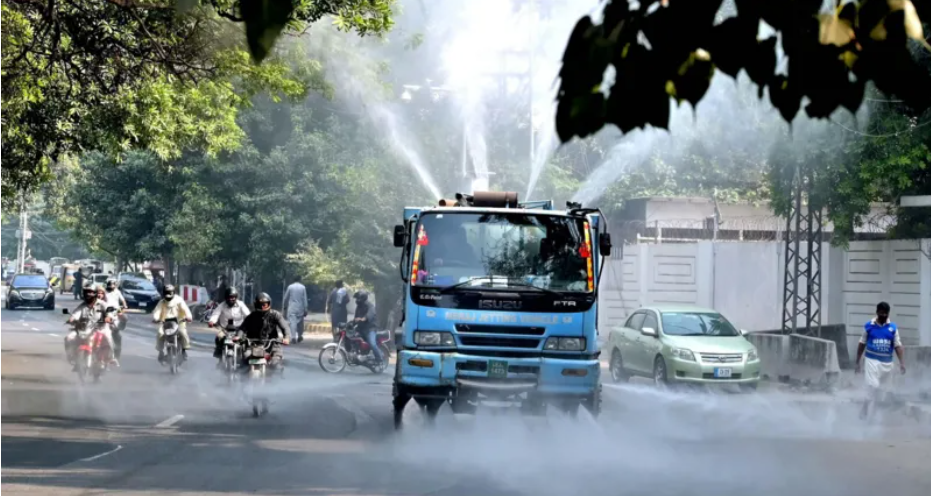Schools close in Lahore as pollution hits record level
Severe air pollution in Lahore, Pakistan, has prompted authorities to close all primary schools for a week.
Starting Monday, half of the city’s office workers will shift to remote work as part of a “green lockdown” initiative. Other measures include bans on engine-powered rickshaws and barbecues without filters.
“This smog is extremely harmful to children, and masks should be mandatory in schools,” stated Punjab’s Senior Minister Marriyum Aurangzeb.
Lahore, the second-largest city in Pakistan, ranked as the world’s most polluted city for the second time on Sunday.
On Saturday, the air quality index, which tracks various pollutants, surpassed 1,000—far above the World Health Organization’s “dangerous” threshold of 300, as reported by IQAir.
Levels of fine particulate matter, the most harmful to health, also reached hazardous concentrations.
Senior environment official Raja Jehangir Anwar noted that burning crop waste, or stubble, across the Indian border is the “biggest headache” contributing to the smog.
Aurangzeb explained that the fumes are “carried by strong winds into Pakistan” and emphasized that resolving this issue would require discussions with India, which the provincial government plans to initiate through the foreign ministry.
The government has urged residents to stay indoors and limit nonessential travel.
To combat the smog, vehicles equipped with water pumps are spraying water into the air, and construction work has been suspended in certain areas.
The situation will be assessed again next Saturday to establish whether schools should remain shut.
Inhaling toxic air can have catastrophic health consequences, including strokes, heart disease, lung cancer, and some respiratory diseases, according to the WHO.
Last month pupils were banned from outdoor exercise until January and school hours were adjusted to prevent children from travelling when pollution levels are the highest.
“As a mother, I am full of anxiety,” 42-year-old Lilly Mirza told AFP news agency.
“Last year was not this bad… Somebody needs to tell us what has happened. Did a pollution bomb explode somewhere?”
The smog crisis is worse in winter, when cold, denser air traps pollutants closer to the ground.



